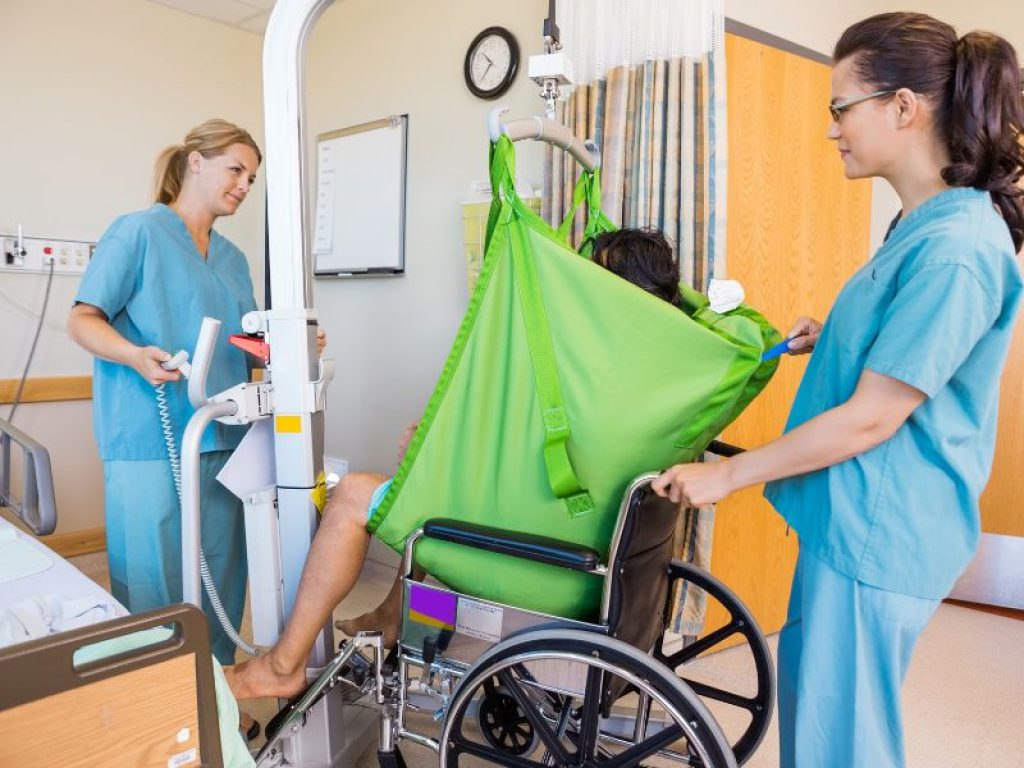
What Does A Women’s Health Nurse Practitioner Do?
In this post, we’ll define a women’s health nurse practitioner, review her job description, required abilities, typical pay, and how you may get started in this field.
What is a Women’s Health Nurse Practitioner?
A WHNP’s scope of practice extends beyond gynecological and obstetric treatment to encompass all aspects of women’s health. Women’s health requirements are not limited to childbearing years, but WHNPs provide comprehensive care throughout a woman’s life. From puberty through pregnancy to menopause and beyond, a women’s health nurse practitioner is there for biological, intersex, and transgender women.
Due to their broader, perhaps more individualized, and collaborative approach to women’s health care, patients may prefer a women’s health nurse practitioner versus an obstetrician. Patients appreciate that WHNPs take the time to answer their inquiries and care for women and their health. Top nurse practitioner schools for women’s health equip RNs with the knowledge and skills they need to practice at the highest level of their chosen field.
Students in WHNP courses learn to prioritize their patients’ mental and physical health. Nurses learn from theoretical and practical experiences and bond with teachers and patients. Busy working nurses who want to earn a Master of Science in nursing while still working full-time may benefit from online women’s health nurse practitioner programs.
What are the skills of women health nurse practitioners?
- Capacity to do well-woman evaluations.
- Education about breast health and how to perform self-exams.
- Education about women’s health.
- Teaching the Patient.
- Experience treating women in a variety of geographical and demographic contexts (rural, suburban, and urban).
What do Women’s Health Nurse Practitioners specialize in?
Because of their extensive education and experience in women’s health, nurse practitioners specializing in this area play an essential role in the medical community. A WHNP may focus on a variety of specializations. Among these are:

General Practice:
Get your health back on track with the help of primary care nurse practitioners who are ready to tackle any common medical issue! When a woman has a health issue, this practitioner is often the first one she sees, regardless of whether or not the issue calls for specialized attention. People will also visit this practitioner if they have a cold, the flu, or a minor injury. They can provide medical diagnoses, drug prescriptions, and specialty referrals.
Services during Pregnancy and After Delivery:
Prenatal care is essential for improving mothers’ and newborns’ outcomes, necessitating specialized training in pregnancy and childbirth. Particularly for extremely young or very older women, a competent nurse’s skills and care substantially affect pregnancy outcomes. Obstetricians must be prepared to handle various challenging situations, such as diabetes, anemia, and emotional distress, in pregnant women.
The healthcare professional who offers care during pregnancy and after childbirth is usually a nurse practitioner with specialized training in women’s health. While WHNPs are well-suited to treat most pregnancies, they may need to transfer care to a doctor in cases of high-risk, complex, or surgical births. To accommodate the wide variety of expectant women who visit their offices, many OB-GYNs team up a doctor with a nurse practitioner.
Women require specialized care after a baby is delivered to handle breastfeeding and other issues related to infant care as well as to recuperate after childbirth. A WHNP’s postnatal services help new mothers recover from childbirth and identify any problems that may arise later.
Health Maintenance During Menopause
After having children, women still benefit from having a specialist nurse practitioner look out for them. As menopause approaches, women also require this kind of attention. Hormonal fluctuations occurring naturally with aging in women are known to contribute to numerous health issues. While these aren’t technically medical issues, they can be addressed by a competent healthcare professional to ease the transition.
Ladies, don’t forget to pamper your health even after the baby-making days! Regular check-ups with your doctor can help detect pesky osteoporosis, thyroid issues, and even ovarian and cervical cancer. Take charge of your well-being and schedule that appointment today!
Still, a general practitioner can perform these exams specialist in women’s health will be better at recognizing early warning signals, and many women report feeling more at ease and confident in the hands of a specialist. A WHNP can help in this way as well.
Preventive Medicine and Health Care
Many nurse practitioners see their primary role as preventing sickness rather than treating it, and this interest drives much of their work. These doctors and nurses will make it their mission to educate women on how to care for themselves medically and improve their health.
A WHNP’s goal is to help women live better and longer lives by educating them about how they may improve their overall health. Additionally, these practitioners aid in screening for anxiety, despair, and domestic violence. Due to their subtlety, these common mental and emotional health disorders might be difficult to recognize, but with the correct training, these practitioners can aid their patients.
What Does a Women’s Health Nurse Practitioner Do?
Nurse practitioners specializing in women’s health can find employment in a wide range of institutions, including clinics, universities, and hospitals. They are experts in obstetrics and gynecology and offer services such as prenatal care, counseling for birth control options, and regular checkups to ensure women’s health. WHNPs also address mental health issues and long-term conditions like diabetes.
A comprehensive range of services is offered to patients by women’s health nurse practitioners. Some of the things they are responsible for are:
- Health services for adolescents.
- Pap smears and pelvic exams are part of well-woman checkups.
- Mammograms and other methods of detecting breast cancer (and subsequent care).
- Testing for and care for sexually transmitted diseases, including human papillomavirus.
- Advice about maintaining a healthy lifestyle.
- Health services for birth control methods.
- Testing for pregnancy.
- Miscarriage care and counseling services.
- Prenatal care, prenatal visits, and postpartum care.
- Menstruation and puberty-related anxiety.
- Fertility tests.
- Incontinence, infections, and other issues with the urinary tract.
- Health and management issues associated with menopause.
- Conduct diagnostic tests for cardiovascular disease, high blood pressure, and diabetes and provide recommendations and follow-up care to those who test positive.
Many states now recognize the advanced education and clinical expertise required to become a WHNP and permit these practitioners to practice independently. In every state, they are legally allowed to do both, except for high-risk pregnancies, for which they must send patients to medical doctors. Nurse practitioners with advanced degrees can administer medication and perform various operations; however, women’s health nurse practitioners (WHNPs) do not perform childbirth. Some states require nurse practitioners to collaborate with a physician, while others allow them to practice autonomously.
How To Become a Women’s Health Nurse Practitioner?
Nurse practitioners specializing in women’s health are highly trained experts who are disciplined and dedicated to their patient’s health. Because of the wide variety of undergraduate and graduate nursing programs available, those interested in this field should do their homework before enrolling. To pursue a career as a nurse practitioner in women’s health, one must complete the following requirements.
Educational Requirement:
Get a four-year degree in the medical field and work your way up to a registered nurse. Science-related subjects like physiology, microbiology, psychology/mental health, pharmacology, and newborn health comprise much of the required curriculum. On the other hand, certain programs—like RN to MSN programs—provide a bridging curriculum that admits students with only an ADN.
Gain a Doctor of Nursing Practice or Master of Science in Nursing from a recognized academic institution. Primary care, prenatal and postpartum care, preventative medicine, and reproductive health education are all covered.
Certification, Accreditation, and Licensing:
To become a women’s health nurse practitioner, you must pass a national certification exam administered by the National Certification Corporation. Criteria for participation. One must be a registered nurse (RN) and have completed a master’s or doctoral program in women’s health care nursing to sit for the exam. The program must be associated with or sponsored by a higher education institution. Women’s health care training must include at least 200 hours of classroom instruction and 600 hours in the clinic.
As part of the certification procedure, candidates can take a written exam that assesses their understanding of female primary care, gynecology, and obstetrics. It’s given once a year, in September, or you can take a computerized version anytime. The costs amount to $325, which covers an application cost of $50 (non-refundable) and a testing price of $275.
A $100 fee and 45 hours of continuing education are required every three years to renew a license. The “BC” in WHNP-BC indicates that the nurse has attained the highest level of certification possible in their field. Learn how WHNPs are licensed in your state and what tests are necessary.
What is the importance of a Women’s Health Nurse Practitioner?
WHNPs are one of a kind. Although they specialize in gynecological treatment, they are also trained to address other wellness areas that impact reproductive health, such as stress management, diet, exercise, and emotional well-being. A WHNP, for instance, can detect and treat STIs and is also equipped to help patients cope with the psychological fallout of such a diagnosis.
Given the state of mother and infant health in the United States, having access to trained WHNPs is crucial. Research published in the Journal of the American Medical Association in March 2019 reports an alarming rise in maternal death rates in the United States. In May 2019, the CDC reported that over 700 American women per year die from complications related to pregnancy or childbirth; this number is considered excessive for a developed country.
According to an article published by the National Institutes of Health in July 2018, a women’s health nurse practitioner can be an invaluable resource for pregnant women, particularly those in high-risk groups for maternal mortality.
What is the Increasing Demand for women health nurse practitioners?
Today, women make up more than half of the population in the United States. As a result, there is already a greater need for doctors who specialize in caring for women’s health issues. According to the Centers for Disease Control and Prevention, more women than males go to the doctor. As a result of these factors, the demand for WHNPs is greater than for other primary care physicians and nurse practitioners.
Conclusion
Women’s health nurse practitioners play a vital role in medicine. They specialize in providing care for women, from prenatal and postpartum care to preventative medicine and reproductive health education. To become a WHNP, one must pass a national certification exam and obtain licensure from their respective state. The importance of WHNPs is increasing; more women than men visit doctors, resulting in an increased







